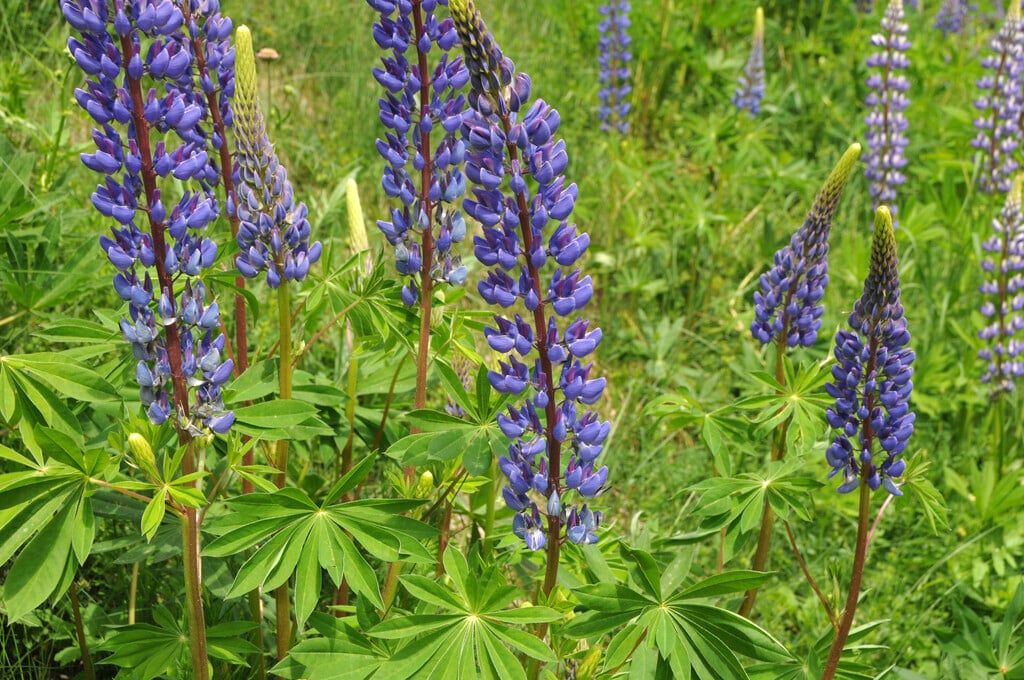Lupinus polyphyllus
bigleaf lupin
Strong, upright, deciduous perennial to 1.5m tall, producing a mound of large, long-stalked mid-green leaves divided into slender leaflets up to 12cm long. Large flower spikes to 40cm tall, of pea-like, blue, purple or reddish flowers are produced in summer
Size
Ultimate height
1–1.5 metresTime to ultimate height
2–5 yearsUltimate spread
0.5–1 metresGrowing conditions
Moisture
Moist but well–drained, Well–drainedpH
Acid, NeutralColour & scent
| Stem | Flower | Foliage | Fruit | |
| Spring | Green | |||
|---|---|---|---|---|
| Summer | Blue Purple Red | Green | ||
| Autumn | Green | |||
| Winter |
Position
- Full sun
- Partial shade
Aspect
South–facing or West–facing or East–facing
Exposure
Exposed or ShelteredDrought resistance
Yes Hardiness
H6Botanical details
- Family
- Fabaceae
- Native to GB / Ireland
- No
- Foliage
- Deciduous
- Habit
- Clump forming, Columnar upright
- Potentially harmful
- Harmful if eaten. Wear gloves and other protective equipment when handling. TOXIC to pets if eaten (dogs, cats, rabbits, tortoises) - see the HTA guide to potentially harmful plants for further information and useful contact numbers
- Genus
Lupinus can be annuals, perennials or shrubs, with palmate leaves and showy terminal racemes of pea-like flowers
- Name status
Correct
- Plant range
- Western N America
How to grow
Cultivation
Grow in light and slightly acid, well-drained or sandy soil in full sun or light shade. May need staking, see staking perennials. See lupin cultivation
Propagation
Propagate by seed in early to mid-spring or by basal stem cuttings in mid to late spring
Suggested planting locations and garden types
- Cottage and informal garden
- Flower borders and beds
Pruning
Deadhead to encourage a second flush of flowers
Pests
May be susceptible to lupin aphid, slugs and snails
Diseases
May be susceptible to lupin anthracnose, Powdery mildews and a virus
Get involved
The Royal Horticultural Society is the UK’s leading gardening charity. We aim to enrich everyone’s life through plants, and make the UK a greener and more beautiful place.
